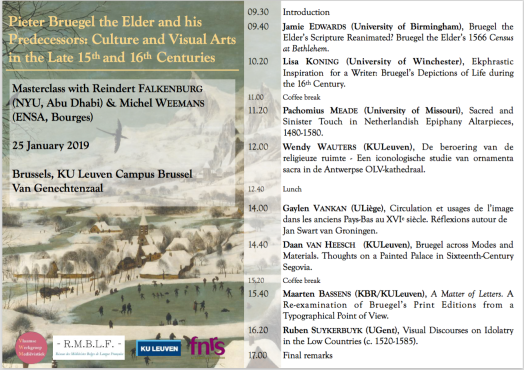The movement of people and books across space and time – mobility and portability – were driving forces of medieval European literary and intellectual culture. Men and women, clerical and secular, constructed extensive social networks and communities through travel, written communication, and the exchange of texts. Shared literary practices and forms occurred at the regional and transregional levels, defining local identities and forging links between people separated by distance and time. Around the North Sea and Baltic littorals, legends from the Norse sagas, for instance, were taken up by writers. On a larger scale, people from north-western Europe to China exchanged stories of Barlaam and Josephat, while tales of Alexander are found from India to Ireland; in both cases, transmission was facilitated by the movement of people along the Silk Road. Rather than a full picture, often we are left with a set of trails, traces and clues that challenge us to create narratives out of the fragments.
This symposium aims to contribute to the understanding of medieval literature through the development of methodologies which examine the intersection of social networks and communities with literary forms. We welcome papers that attend to the agency of people (men and women), genres (literary, scientific, philosophical, legal etc.), modes (verse, poetry, prose), styles, texts and manuscripts (book types, layouts, images) in creating literary links across space and time. Building on the practices of both comparative literature and entangled history, the symposium will open up connections between literary cultures often considered to be separate. At the same time, and of equal importance, it will be alert to the absence of connections, to discontinuities, exposing the diversities and ruptures of medieval literature, as well as the commonalities.
By following the movement of forms and tracing social connections from Antiquity to the Renaissance, we will interrogate both geographies and chronologies of medieval European literature. Always keeping the intersection of the social and the formal in view, the symposium will move back and forth between small and large scales of time and place: the local, the transregional, the European, and the Afro-Eurasian. Issues of morphology, scale and periodization will be central to discussion, enabling conversations across a wide range of material to gain traction. The symposium will bring together methodological and theoretical contributions, addressing the intersection of people and forms; we welcome papers that work on large scale typological models as well as papers that address broader issues though closely-worked case studies.
Questions to consider include:
- How do we move from specific examples to writing/formulating larger narratives, from the micro to the macro, from the close up to the panoramic, without falling into generalizations?
- What are the advantages and disadvantages of existing methodologies that account for the movement of objects, texts and people through space (e.g. histoire croisée, actor network theory, global history, etc.)?
- How does medieval Europe fit into a wider Afro-Eurasian space? How does Europe divide into and participate in regional geographies?
- How conscious were medieval people of new forms as a dimension of cultural exchange?
- What role does the modern historical imagination have to play in recreating social networks and formal encounters?
- How do medieval theories of cultural movement (e.g. translatio imperii et studii, spoliation, etc.) enable us to explain the transmission of literary forms?
Format
The symposium will meet over three days, with each day including 3 panels with three speakers. Papers will last 20 minutes and be followed by 45 minutes of discussion per panel. Since the substantial discussion following the papers is as important as the papers themselves, papers will not be allowed to overrun. Each session will have a respondent/moderator who will read papers in advance of the session and launch the discussion of their session through a short reflective invitation. For this reason, we ask that all papers be given in English. Speakers are asked to frame their research in ways which are simultaneously sophisticated and inviting of exchange with colleagues working across the literatures of medieval Europe (including Byzantium, and Islamic Spain and Sicily) and its neighbours. We welcome proposal for individual papers and for panels.
There will be a modest amount of preparatory theoretical reading in advance of the symposium.
Publication
We anticipate publishing extended versions of a selection of papers from the workshop in a special issue of Interfaces: A Journal of Medieval European Literatures.
Venue
The symposium will take place in the Danish Institute at Athens, conveniently located in the Plaka. There are many tavernas, cafes and restaurants nearby.
Cost
There will be no charge to attend the symposium. There will be a charge to cover the cost of the symposium dinner. Delegates are responsible for covering the cost of their travel and accommodation. A small number of bursaries will be available for PhD students and early career scholars, for further information contact Kristin Bourassa (kristin@sdu.dk).
Abstracts
Please send short abstracts (250 words) and a brief CV (1/2 page) to George Younge (george.younge@york.ac.uk) by 1st March 2019. Panel proposals should include overview (100 words) and abstracts and CVs (as above) for all papers.
DOWNLOAD THE CALL FOR PAPERS AS A PDF







